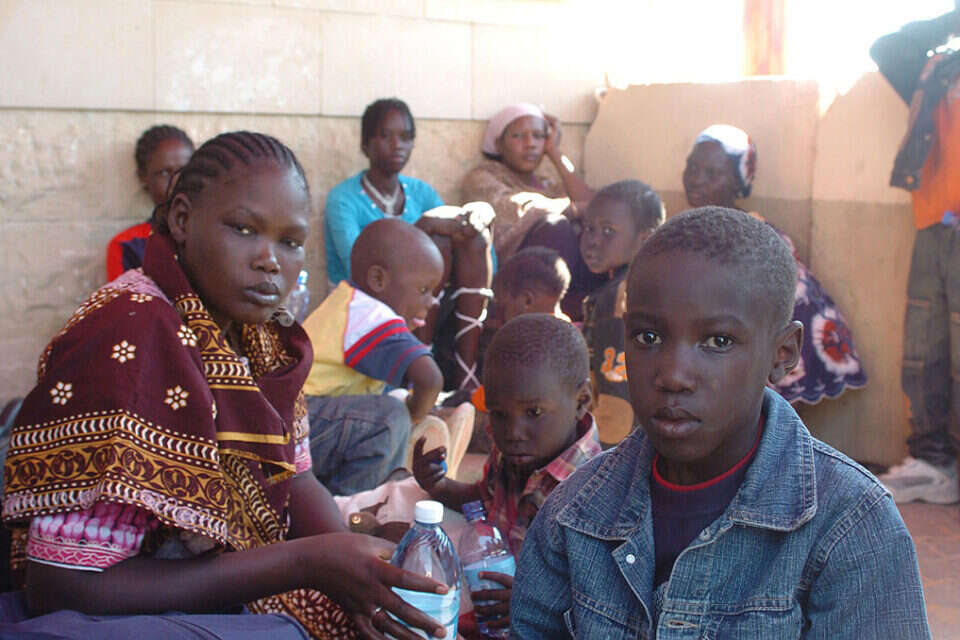The beautiful and well-designed cover of the two volumes of the new collection "The Voice of Your Brother's Demonstration: A Collection of Poetry on Genocide" stands in stark contrast to the shocking chaos and human ugliness presented in the songs that are gathered within them.
In an exciting and unusual enterprise, the creators of the collection have collected and translated over a hundred songs in a variety of languages dealing with genocide (genocide).
The first volume of the collection is entirely devoted to the Holocaust and the second volume to eleven genocide incidents that have taken place around the world in the last hundred years.
The first volume of the collection is nothing but a reprint of the poem "The Song of the Killed Jewish People" by Yitzhak Katzenelson.
The poem, translated by Yiddish from Menachem Zalman Wolfosbecki in 1949, was written by Katzenelson in 1943, while he was in the Vital concentration camp in France, and before he was sent to his death in Auschwitz.
The canonical poem, in Wolfowski's masterful translation, includes a terrible and shocking lament that commemorates the horrors of the Holocaust.
The poem is signed with lines that link all the hardships of the Jewish people in history to the days of the Holocaust, which in Katzenelson's eyes seal the fate of the Jewish people;
Lines designed to echo to the witness: "And I wondered, I wondered, and Mahninenha and I was not ... Private Mother, Vaye Makradim, who is heard,
Alongside the first volume, which is deliberately different from it, there is a second volume that includes a variety of songs that deal with genocide incidents.
The songs are arranged in chronological order, from the Armenian Genocide (1915-1923), through the genocide in Biafra (1966-1970), for the atrocities that took place in Bosnia and Rwanda in the 1990s, and to this day we are in Darfur, Iraq and Myanmar.
Each of the song divisions is devoted to a brief historical introduction and the numbers presented in them are unbearable - hundreds of thousands murdered, tens of thousands raped, millions of refugees;
Intolerable testimony.
Nevertheless, the collection shows that it was precisely out of the disaster that many people wrote poetry, as a tool for emotional release and as a triumphant testimony to injustice.
It is worth noting that many of the collection's songs were not translated from the source language, but from English, through a mediated translation.
But even so, even if the Hebrew translations are far from the original, and even when it comes to the less good songs included in the collection, in most cases the shaky power of the songs stands them in good stead due to their content.
Moreover, it often seems that the power of poetry, even in translation, is far greater than that of historical preface - all the numbers and figures in the world, which turn to the head and mind, will not compare to the testimony presented in one poem, and manage to mediate the suffering of the other. Into the heart of the Israeli reader.
Indeed, the personal and narrative songs in the collection are almost always more powerful and moving than the general lamentations that describe the magnitude of the entire disaster.
For example, one of the most painful songs in the book, written in Hebrew by Tokoni 'Osumein Barka, a Darfuri refugee currently living in Israel.
The song is written as a simple testimony about everything that is lost to the poet, without mentioning a horror in its name: "The maternoliary," ... " . / I had a donkey in the morning, I called him a doggie, on whom I rode from village to village [...] I had five sheep to walk with them,
Similarly, the song "Hunger" by Oli Beyer, which writes about the genocide in Biafra, presents with great simplicity and chilling the torture of hunger: ..] You may think of a hare, we will say, we will not worry about the heart of the heartphone. We have to make a sacrifice for him every day. "
Precisely in the days when a terrible war is raging in Europe, and people who are not our people die in their thousands, hungry for bread and millions of them become refugees who even come to our country, poetry stands and declares: This is what the other's suffering looks like
Voice of your brother's fees / editor: Mia Valentine, Dror Publishing for the Soul, two volumes, 81 pages, 288 pages
Were we wrong?
Fixed!
If you found an error in the article, we'll be happy for you to share it with us

